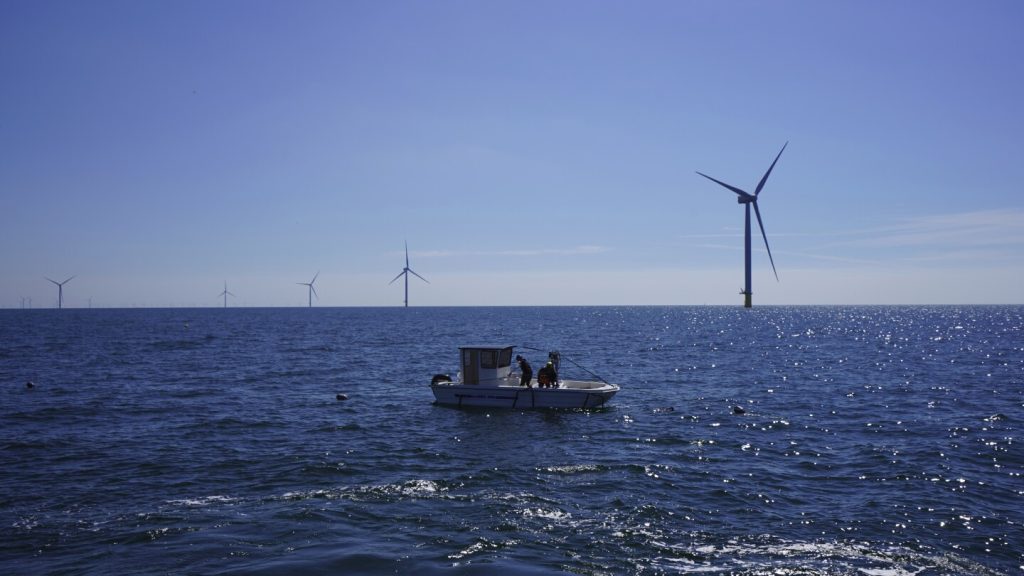Researchers in Europe’s Baltic Sea are exploring multiple uses for offshore wind parks, such as fresh seafood production. The project at the Kriegers Flak wind farm involves growing mussels and seaweed on lines between the turbines. The project, run by Vattenfall and Aarhus University, aims to produce fossil-free energy and food for a growing population. With a capacity of over 600 megawatts, Kriegers Flak can power up to 600,000 households and is already showing signs of early success with its experimental underwater seafood farm.
The seaweed and mussel crops grown between the turbines are low trophic aquaculture crops that do not require fertilizers. They take up nutrients from the sea and can produce healthy foods. Research suggests that tons of fresh seafood could be produced annually by utilizing just a fraction of Denmark’s wind park area. Beyond food production, the seaweed and mussel crops could help improve water quality and capture carbon emissions. Researchers emphasize the need to develop guidelines to encourage companies to plan for multiple uses of the ocean as European nations increase clean energy production from wind turbines.
European countries are ramping up production of clean energy from offshore wind farms to meet climate targets and reduce energy dependence on Russia. Denmark, a pioneer in offshore wind energy, is among nine countries planning to quadruple production by the end of the decade. Vattenfall bioscience expert Tim Wilms sees huge potential in combining wind energy with sustainable food production or offshore solar. While offshore wind farms have both positive and negative impacts on local ecosystems, efforts to develop multi-use developments are still in early stages. Researchers hope to scale up to commercial food production in the North Sea while ensuring sustainable practices.
Offshore wind farms have been criticized for damage to the sea floor during construction, noise pollution, and other negative impacts. However, structures like underwater cables and boulders laid at the base of turbines can act as artificial reefs, attracting marine life and protecting against large-scale fishing operations. More research is needed to understand how to combine human activities in the ocean to create strictly protected areas. The Kriegers Flak project aims to expand its knowledge to the extreme conditions of the North Sea and eventually scale up to commercial food production. Researchers emphasize the importance of addressing unanswered questions before implementing multi-use developments in the right way.


